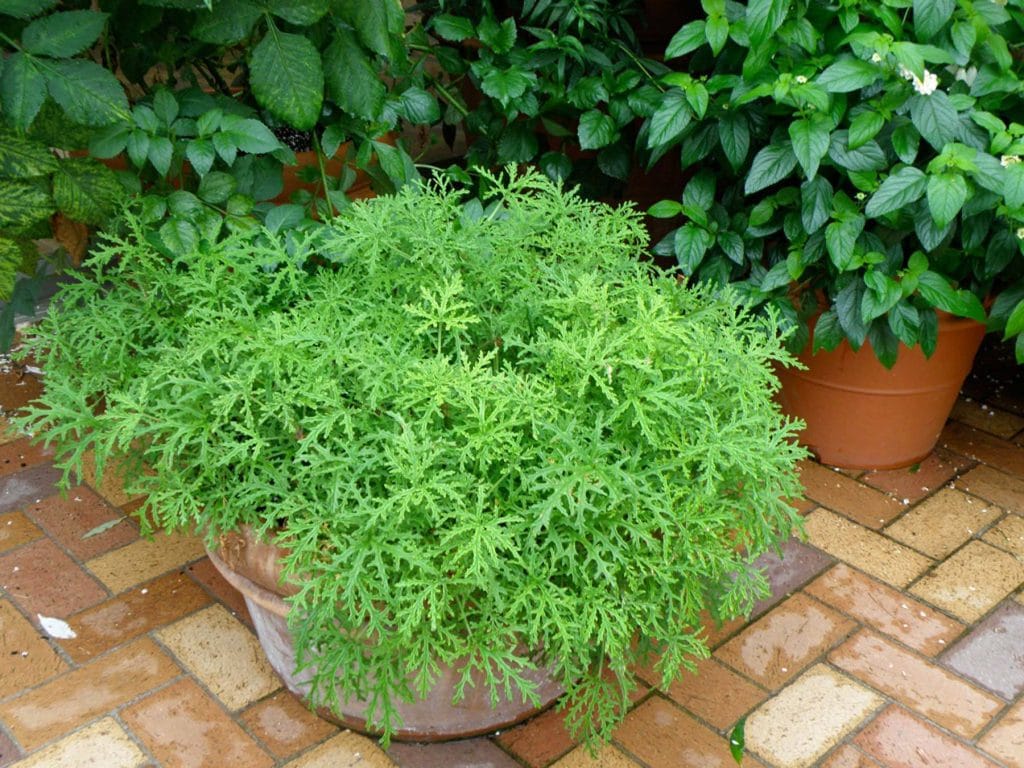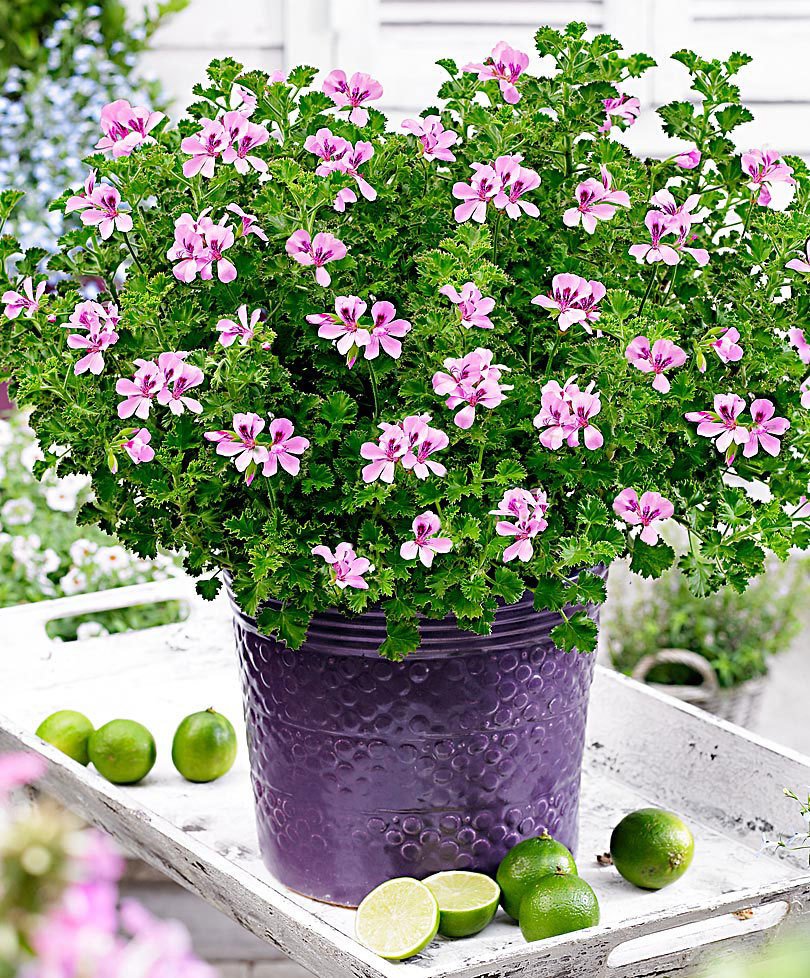How to Plant a Citronella Plant in the Garden
If you have problems with mosquitoes in your garden, it can make planting and weeding much more difficult. Mosquitoes are a common problem worldwide, but it can be hard to find a natural solution to remove the pests from your yard and home. A citronella plant is a natural remedy against mosquitos and an effective repellent. Also, it’s easy to grow as an annual or perennial, depending on your climate. With just a few easy tips, you’ll have plenty of citronella plants to make your garden smell fresh and be mosquito-free.
This guide will give you some quick facts about citronella, how to plant it in your garden and some of the ways you can use it in your yard and around your home. You’ll also see both sides of the myth surrounding citronella as a bug repellant. While some gardeners are positive it has insect-repelling characteristics, others aren’t so sure. Whether it is an effective bug repellant or not, a citronella plant is a popular and fragrant way to spruce up your garden.
What Is a Citronella Plant?
There are many varieties of plants that are called citronella, but the true plant, Cymbopogon, is very similar to lemongrass. It can grow up to six feet tall and has a strong citrus scent. It should look like grass, rather than foliage that is leafy or lacy. It is also sometimes called citronella grass, to avoid confusion.

image from: bonnieplants.ca
A citronella plant produces an oil that, once the grass is crushed, can be used for many medicinal purposes. It’s even used as an herbicide and is quite powerful in large doses. This tropical grass originates in southern Asia and is still popular in India, Indonesia, Sri Lanka and many other countries. It’s frequently used for many natural home remedies, such as cooking and cleaning.
Because it is a tropical plant, it will only grow as a perennial in zones 10-12. You can grow it annually in cooler climates, or you can keep it growing indoors. Each plant can be split in the spring, and it can grow to be up to 4 feet wide. It’s useful as a natural scent near a patio or a large and tropical landscape feature in the yard; furthermore, some research indicates it could be effective as a mosquito repellant. It’s thought to be a widespread myth, but the research is unclear so far. It’s so widespread that many people refer to it as a mosquito plant.
Geraniums and Other Citrus-Smelling Plants
If you see a plant with leafy foliage being marketed as a citronella plant, it’s probably a geranium. There are geraniums that have a citrus smell, so some markets try to sell them as citronella. While they also have a pleasant aroma, these false citronella plants don’t have any of the same oils. If you are growing a citronella plant for medicinal, cooking or mosquito-repelling purposes, a geranium won’t have any of the same effects. Be sure to buy a true citronella plant, and don’t be fooled by similarly named products.
If you aren’t interested in the properties of citronella oil but are looking for a great fragrance for your home or garden, there are some great citrus-smelling alternative plants. You can grow lemon verbena for a bright, lemon scent. Lemon balm is another herb that works well for cooking. It’s related to mint but has a wonderful lemon scent. These are the easiest to grow citrus-scented herbs and plants, but you can also try lemongrass, lemon basil or lemon thyme for unique citrus fragrances.

image from: bakker.com
How to Grow It
Citronella grows very easily as an annual plant because it works well with a variety of soils. It prefers heavy watering but can withstand harsh summers with little water for a few days. It the citronella plant falls over or appears stretchy, it’s probably not receiving enough sunlight. They should have around six hours of sunlight at a minimum. If you are in zones 10-12, you can grow citronella as a perennial. You may need to give it some fertilizer every year to keep it growing healthily. You can prune citronella frequently, and cutting the stalks gives you a boost of the great citrus scent. If you are using it as a perennial, whether indoors or in a warm climate, you should be able to split the plant in the spring. If you are in a cooler climate, it won’t last through the frost. Be sure to bring it inside or be prepared to replant the following spring. If you see woody or dried-out stalks by the end of summer, it may not be receiving enough water. Consider watering it more often or giving it more shade.
Does a Citronella Plant Repel Mosquitoes?
There have been many studies, both in the United States and Europe, trying to determine if a citronella plant repels mosquitoes. Many gardeners and homeowners have reported a lot of success with citronella as a mosquito repellent. Some studies in the United States seem to confirm that it is slightly effective, although not as effective as chemical repellents like DEET. Other studies haven’t shown any positive results, so it’s unclear whether it works or not. Even those who claim it works recommend that you use citronella oil. You can get this oil by crushing stalks and rubbing them on your skin, by buying citronella oil or by using citronella candles. The candles, although convenient, are the least successful mosquito repellant. The plant isn’t completely useless as an insect deterrent however, as whiteflies don’t like the smell of it. If you want a proven, effective mosquito repellent, a citronella plant might not be the most effective choice. However, as an all-natural choice that freshens up your garden, is easy to maintain and might slightly decrease the number of mosquitoes, for that, it’s a great choice.
There are other plants that claim to have mosquito-repelling properties. Again, none of these have been scientifically proven to be completely effective. With the right use, however, they may help limit the mosquito population, and they’ll certainly make your garden smell fresher, creating a calmer gardening experience. Basil is said to have these properties. Because it’s an herb, it needs a damp environment with a lot of sun. Its strong smell is great next to your kitchen, and it doubles as a useful herb for cooking. Rosemary is another herb that may have some mosquito-resistant properties. It wants a drier environment, so it’s a great choice if you struggle to find enough moisture for basil. Lavender also may have a fragrance that repels mosquitoes. It’s also a very calming aroma. Grow lavender near your garden or patio and see why it’s such a popular essential oil. Each of these plants has mixed reviews as far as their mosquito-repelling effectiveness is concerned. But each one can also serve another purpose by keeping your garden smelling fresh and looking vibrant.
Other Uses for a Citronella Plant
If a citronella plant isn’t working as a mosquito repellent, consider some of these other uses. Thankfully, the oils from this plant are very powerful and have a variety of benefits. A citronella plant is easy to prune and generally responds well to fewer stalks. Be very cautious with the oil, however, as some individuals have had allergic reactions to the oil on their skin.
Burning the Oil
One of the most popular strategies is to add oil to a candle or flame. There are two ways this can help you. First, this is thought to be a great way to repel mosquitoes. While citronella oil candles may be more effective than the plant itself, you can give it a try and see how effective it is in repelling mosquitoes around you. Another use is aromatherapy. Once you burn the oil, the citrusy smell from the plant becomes very potent. This powerful, soothing aroma is often used to treat migraines. Because the oil is quite strong, you’ll want to start with just a few drops to see how the candle reacts to it.
Antibacterial, Anti-inflammatory and More
Many cultures have used citronella oil to clean wounds. Apply the oil to a cut or infection, and it can be an all-natural way to clean it safely. It’s been used to reduce swelling, fungal infections and even as a muscle relaxant. Apply it to your scalp as an all-natural option for removing lice. While people don’t like the taste of it, it is still featured in Indonesian cooking. It isn’t as sweet as lemongrass but has similar flavors.
Consider These Available Tools
No products found.
Conclusion
While citronella isn’t a miracle plant that removes all mosquitoes from your garden, its oils may prove effective in deterring large amounts of these pesky insects. If you’re willing to try a natural remedy, consider planting a citronella plant in your garden, and use the oil on your skin. Of course, even if it isn’t an effective mosquito-repellent, it still provides a fresh scent, a tropical look and a few home remedies. Don’t be confused with geraniums that are called citronella, but you can also take a look at them or other citrus-scented plants and herbs if you are only looking for a way to freshen up your garden. The next time you need to weed your vegetables may not be mosquito-free, but it might just smell more pleasant.
Last update on 2024-04-24 at 15:34 / Affiliate links / Images from Amazon Product Advertising API